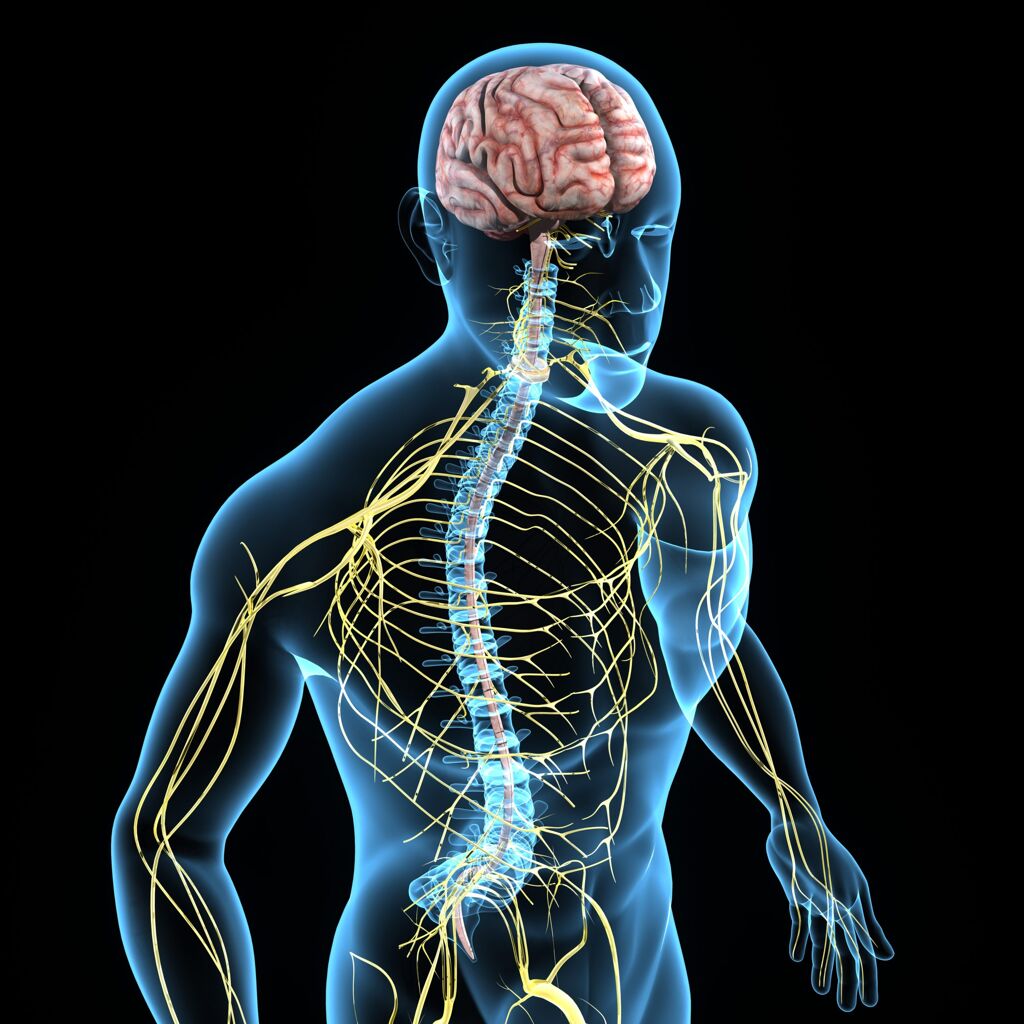Sports Nutrition 101

Welcome to our blog this week, which starts our coverage of Sports Nutrition. This article today covers macronutrients for sports performance, including protein requirements for performance & recovery and fat burning vs carb burning.
We plan to write a number of articles covering some key aspects of Sports Nutrition, including tips on how to fuel your athletic activities. We will explain some interesting concepts, such as the role of the gut in sports performance, how cellular energy is created in the body and how to enhance this process, the use of creatine or other supplements for sports performance and peptide and growth hormone therapy. Please stay tuned with us each week!
Our advice is aimed at the recreational athlete, and not necessarily for elite athletes. Recreational athletes are people who exercise 45–90 minutes, 2–3 times per week (Desbrow B, 2020). Our advice to elite athletes wouldn’t change but, if we were directly advising elite athletes who play their sport competitively, it would be more focused on a specific sport, training schedule and intensity level.
The benefits of exercise are endless. Exercise helps weight loss, improves mood and mental health, improves sleep quality, reduces risk of chronic disease, is beneficial for heart health, promotes strong muscles and bones, helps maintain brain health, increases energy levels (through increasing the mitochondria in cells which is the energy powerhouse of the cell), increases insulin sensitivity through the creation of new (insulin-sensitive) muscle cells, reduces stress/helps to manage stress and enhances longevity.
Carefully considering your nutrition for sports is important. To perform optimally and train hard, you need to fuel your body appropriately with a well-balanced diet. The food we eat impacts strength, training, performance, muscle synthesis and recovery.
To Read About Blog Topic, Scroll Down
Want To Work With Our Clinic?
Do you have a chronic or mystery illness that no one has been able to help you with? Are you simply wanting to re-connect with a healthier version of yourself? It’s Time To Finally Feel Better!
Adequate Energy
It is important to eat enough to sustain your activities.
Energy Availability = The calories remaining for body processes once the energy cost of the sport activity has been subtracted (Desbrow B, 2020).
Energy Availability (EA) = Energy Intake (calories eaten) – Exercise Energy Expenditure (calories burned on sports) (Desbrow B, 2020).
Long periods of low EA, which is technically defined as <15 kcal/lb. of fat-free mass (Desbrow B, 2020), or repeated days of acute low EA, in lean individuals can cause issues. This is a condition called RED-S or Relative Energy Deficiency in Sport (Desbrow B, 2020). A low energy diet during training may lead to loss of muscle mass, strength, bone mineral density, increased vulnerability to illness and injuries and issues with immune, hormone or reproductive functions (Kerksick CM, 2018). RED-S can negatively affect metabolic rate, menstrual function, bone health, immunity, protein synthesis and cardiovascular health. Signs of RED-S include fatigue after adequate rest, irregular or absent menstrual cycles in women or decreased testosterone levels in men (Desbrow B, 2020).
To avoid RED-S and unnecessary fatigue, it is important to eat enough to sustain your physical activity. Unfortunately, we can’t give a calorie target for everyone, as it so individual. It depends on gender, body size, type of exercise, amount of exercise, intensity and other factors but a general rule of thumb is that women should be getting approx. 2000 calories per day and men approx. 2500 calories per day.
If you are exercising 30–40 min per day, 3 times per week, you can follow a normal diet of about 1800–2400 cals/day or about 11- 16 cals/ lb./ day for a 110- 175 lb. person (Kerksick CM, 2018). The calorie demands from this level of exercise are about 200–400 cals/ session (Kerksick CM, 2018).
Moderate exercise, defined as 2–3 h per day of intense exercise performed 5–6 times per week or high volume intense training (3–6 h per day of intense training in 1–2 workouts for 5–6 days per week) may expend 600–1200 cals or more per hour during exercise (Kerksick CM, 2018). For these people, caloric needs are higher at 18-32 cals/ lb./ day (2000–7000 cals/ day for a 110–220 lb. athlete) (Kerksick CM, 2018).
For elite athletes, energy expenditure during heavy training or competition will be much higher. For example, energy expenditure for cyclists who compete in the Tour de France has been estimated as high as 12’000 kcals/day (68-90 cals/ lb./ day for a 132–175 lb. athlete (Kerksick CM, 2018).
Be sure to eat enough for your activity level and size, to maximize your performance and recovery.
Macronutrients
In addition to adequate energy, what should you eat? No discussion on sports nutrition would be complete without looking at macronutrients and how much to get of each one. The three macronutrients are protein (PRO), carbohydrates or carbs (CHO) and fat (FAT).
People following a general fitness program and not training to meet any performance goal can typically meet daily macronutrient needs by eating a normal diet. Experts have differing opinions as to the split between macronutrients. One study advocates having (as % of total calories for the day) 45–55% CHO, 15–20% PRO and 25–35% FAT (Kerksick CM, 2018). Another Sports Nutrition Scientist, Dr. Stacy Sims, advises a split of 40% CHO, 30% PRO, 30% FAT.
Anywhere around these two opinions is fine and this is where you can play around with your diet to see what works best for you.
Protein Requirements
Not getting enough protein can be problematic for an athlete. Insufficient protein levels can lead to slow recovery, muscle wasting, injuries, illness and training intolerance (Kerksick CM, 2018). For people involved in a general fitness program, research indicates optimal protein intakes in the range of 0.6-1.0 g/lb./day (Kerksick CM, 2018). This will help healthy weight individuals looking to build muscle.
One study concluded that a daily protein intake of 0.8 g/lb./day may be an ideal place to start (Kerksick CM, 2018). In addition, older people (53+ years) may benefit from a higher daily protein intake of at least 0.5 g/lb./day of protein because older muscle may be slower to respond and less sensitive to protein ingestion (Kerksick CM, 2018).
Good sources of protein for sports and building muscle are organic animal products (chicken, beef, eggs, lamb, bison, turkey, etc.) and wild caught fish. Some high-quality protein powders and bars can be useful and we will cover these in a specific discussion on diet for sports.
Carbohydrates Requirements
Carbohydrates before, during and after intense training is essential (Kerksick CM, 2018). Carbs are a source of glucose, which is a key fuel for the body. Carbohydrates improve athletic performance by delaying fatigue and allowing an athlete to keep going for longer. Glycogen is a storage form of glucose and is mainly stored in the liver and the muscles. Glycogen provides the body with a readily available source of energy if blood glucose levels decrease, which happens with exercise.
How much?
The American College of Sports Medicine (ACSM) recommends that moderate exercise (1 h/day) requires 2.3-3.2 g /lb./day of CHO, while moderate to high intensity exercise (1–3 h/day) needs 2.7-4.5 g/ lb./day (Jäger R, 2017). The International Society of Sports Nutrition (ISSN) recommends athletes should eat 3.6-5.5 g/ lb./day CHO in the diet to maximize glycogen stores (Vitale K, 2019).
The majority of carbohydrate should come from (gluten free) whole grains, rice, potatoes, sweet potatoes, root vegetables, vegetables and fruits.
Fats Requirements
With the advent of the low-carb ketogenic diet, there is some debate about fat’s role in the diet and specifically in relation to carbs. This debate extends into the word of sports nutrition as well. Generally, it is recommended that athletes consume a moderate amount of fat; approximately 30% of their daily caloric intake (Kerksick CM, 2018). Good sources of fat include avocado, olives, olive oil, fats found in meats, eggs, fish and nuts, as well as coconut products, butter and ghee.
High fat low carb diets have been used by athletes with the evidence showing no benefit and consistent gastrointestinal challenges, when compared to a higher carb approach to eating (Kerksick CM, 2018).
Ketogenic Diet for Performance?
The ketogenic diet comprises 70–80% of daily calories from fat, a moderate amount of protein (20–25% total calories) and is very low carbohydrate at about 10–40 g per day (Kerksick CM, 2018). This diet is designed to train the body to use ketones as an alternative fuel source, rather than glucose.
This area is new in research and studies are being done on the overall health benefits of a ketogenic diet and how it affects sports performance as compared to a more conventional higher carb diet.
What is known is that, even at moderate intensity exercise, how an individual athlete responds to a ketogenic diet can vary, with extremes at both ends of the performance spectrum depending upon the individual person (Burke, 2020).
One recent study found that a ketogenic diet provides minimal performance benefits in normal-weight people (Kang J, 2020). Another study found no clear performance benefit to athletes following a ketogenic diet (McSwiney FT, 2019). This is because endurance performance remains limited by glucose availability on a keto diet, even in trained endurance athletes (McSwiney FT, 2019). A brand-new study has found that, at the elite endurance athlete level, a ketogenic or even LCHF (Low Carb High Fat) diet is detrimental to performance (Burke LM, 2020). Elite athletes following a low carb approach had worse performance outcomes in endurance events than when they followed a high carb diet (Burke LM, 2020).
The only clear-cut benefit of the keto diet is in short duration, high intensity sports (like a track & field event) (McSwiney FT, 2019). In addition, the keto diet did improve symptoms of any inflammatory conditions of athletes who followed a keto diet (McSwiney FT, 2019).
- Importantly, there was no performance benefit from a keto diet, but equally there was no performance decrease, particularly in recreational athletes (McSwiney FT, 2019).
- The conclusion is that in intense endurance sports (Iron mans, marathons, long triathlons), performance is much more likely to suffer from a keto/ low carb diet than benefit.
- Performance in most other sports will be equal or neutral and there may be a slight benefit in short duration high intensity sports from the ketogenic diet.
The Timing of Carbs
There have been many studies, and anecdotal experience, on manipulating the amount and timing of carb intake for performance.
One strategy is to “train low (carb), compete high (carb)”. This refers to a plan in which an athlete first follows a high fat, low carbohydrate diet for 1 – 3 weeks while training. Then carbs are reintroduced back into the diet for the competitive event. The idea is that the body will be fat-adapted and can use fat as fuel. With the addition of carbs for the event, the body now has a second source of fuel, glucose, and can use fat or glucose to compete. However, no consistent, favorable impact on performance has been found with this approach (Burke, 2015).
Another approach to carb manipulation is the ‘periodization’ of carbs and a keto diet (Burke, 2020). Carbohydrate periodization changes carbohydrate availability on a day-to-day or even a meal-to-meal basis. An athlete eats low-, moderate- or high-carbohydrate in given meals, to change the availability of carbohydrates (and glycogen stores) for different training sessions. The idea is the same as above; it should improve capacity for higher‐intensity exercise, as the body learns to use both glucose and ketones as fuel (Burke, 2020). However, there is no evidence of improved performance compared with a higher carb diet for athletes (Burke, 2020)
So, experiments with different diets have failed to find a benefit of one diet vs another (Burke, 2020).
Endurance athletes looking to optimize diet for performance should experiment and use their own personal experience to see how their body responds. Each person may have a different response and has to find the best diet for their individual body and sports activities. Each individual should assess the risk for themselves of poorer performance at higher‐intensity exercise, given the likelihood of a depletion of carbohydrate/glycogen stores (Burke, 2020).
In Summary, the general dietary highlights for recreational sports nutrition are:
- Calorie Requirements: Women should be getting approx. 2000 calories per day and men approx. 2500 calories per day. It is difficult to generalize as it depends on body size, type of exercise, amount and intensity of exercise and other factors.
- Macronutrient Split: Approx. 40-50% CHO, 25-30% PRO, 25-30% FAT
- At the recreational level, the most important factor is to get enough calories in to sustain your workouts or training. The second priority would be to get enough protein in for muscle recovery and synthesis. Then think about getting enough carbs for your activity levels. Beyond that, nutrient timing and other factors are details to look at once you have gotten the priorities right.
- Don’t worry too much about grams of each macronutrient and weighing foods. Aim for a macronutrient split by % of calories as above.
- The one caveat is to aim to get enough Protein at about 0.6-1.0 g/lb./day. For a 125 lb. woman, that is 75 to 125 grams of protein per day. For a 180 lb. man, that is 108 to 180 grams of protein. The best sources are organic meats and wild caught fish, eggs, whey protein (more on this in a future article). Protein is important for muscle repair and recovery.
- The best sources of Carbs are (gluten free) whole grains, rice, potatoes, sweet potatoes, root vegetables, vegetables and fruits.
- Good sources of Fat include avocado, olives, olive oil, fats found in meats, eggs, fish and nuts, as well as coconut products, butter and ghee.
- Ketogenic Diet: There is no performance benefit from a ketogenic diet, but equally there is no performance decrease, particularly in recreational athletes (McSwiney FT, 2019). In intense endurance sports (Iron mans, marathons, long triathlons), performance is much more likely to suffer from a keto/ low carb diet while there may be a slight benefit in short duration high intensity sports from the diet (Burke, 2015) and (Burke LM, 2020).
- Timing of Carbs (carbohydrate periodization): Experiment with your amounts and timing of carbs, although there is no firm evidence that this provides a performance edge (Burke, 2015) and (Burke LM, 2020).
Ultimately, bio-individuality counts for a lot in the macronutrient split in sports nutrition and performance. Each person is unique with individualized nutrition requirements. Differences in anatomy, metabolism and body composition all influence overall health, performance and the particular foods that make each person feel their best.
In future articles, after having explored different topics in sports nutrition in more detail, we will provide a more specific recommended diet approach with supplements, to help optimize sports performance. We hope that you will stay with us through to the end of this Sports Nutrition series so you can benefit from the advice!
** Please stay tuned for next week’s article on Sports Nutrition when we will look at the role of the gut (our favorite topic!) in Sports Nutrition **
Are You Suffering From A Chronic Illness?
Does your current health situation look like this…
- Do you feel that you have tried many things and either nothing works, or the treatment does not hold?
- Have you been told that there is nothing that can be done to reverse your illness and you just need to manage symptoms?
- Does your illness impact your work, your family, your happiness and your social life?
We specialize in finding answers and solutions for complicated chronic illness when people feel like they have tried everything. If this sounds like you, book a free call with us to see if we are the right fit for your health goals.
Dr. Miles has spoken for the following organizations:

















Responses